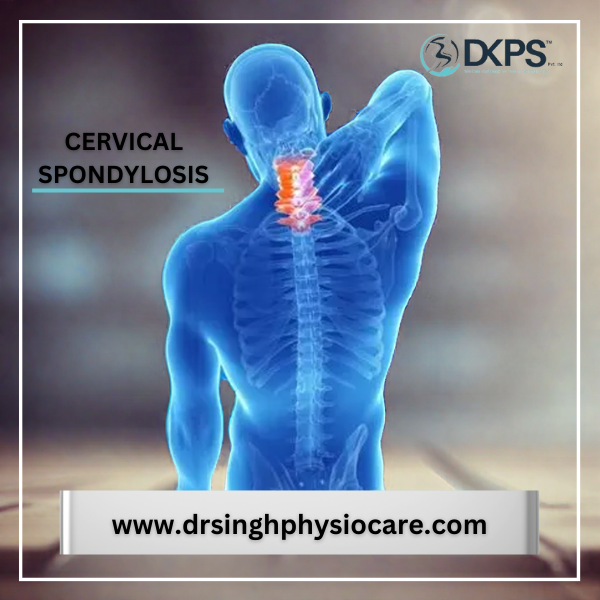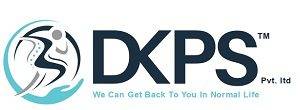- Home
- About Us
- DKPS Dealing
- BLOG
- Delhi NCR
- Delhi
- Physiotherapy at Home Near Me | Physiotherapist in South Delhi
- Best Chiropractor in Delhi
- Physiotherapist in Delhi
- Cupping Therapy in Delhi
- Home Nursing Services in Delhi
- Needle Therapy for Back Pain
- Sports Injury Physiotherapy
- Best Physiotherapist Visit at Home in Rohini Sector 24
- Physiotherapy at Home In Rohini Sector 9 |
- Physiotherapist in Pitampura | Physiotherapy at Home in Pitampura
- Physiotherapy at home in Rohini sector 29
- Physiotherapist in Paschim Vihar
- Physio home visit | Home Visit Physiotherapy |
- Physiotherapist in Saket | Best Physiotherapist in Saket |
- Physiotherapist In Janakpuri | Best Physiotherapist in Janakpuri |
- Best Physiotherapist in Punjabi Bagh | Punjabi Bagh Physiotherapist |
- Best Physiotherapist Service at Home in Dwarka, Delhi
- Best Physiotherapist in Chandigarh at Home Visit
- Faridabad
- Gurugram
- Noida
- Best Physiotherapy Gorakhpur
- Best Physiotherapist in Lucknow | Physiotherapist in Lucknow near me |
- Delhi
- Mumbai
- Delhi NCR
- Department
- Doctors
- Gallery
- Packages
- Contact Us
- Home
- About Us
- DKPS Dealing
- BLOG
- Delhi NCR
- Delhi
- Physiotherapy at Home Near Me | Physiotherapist in South Delhi
- Best Chiropractor in Delhi
- Physiotherapist in Delhi
- Cupping Therapy in Delhi
- Home Nursing Services in Delhi
- Needle Therapy for Back Pain
- Sports Injury Physiotherapy
- Best Physiotherapist Visit at Home in Rohini Sector 24
- Physiotherapy at Home In Rohini Sector 9 |
- Physiotherapist in Pitampura | Physiotherapy at Home in Pitampura
- Physiotherapy at home in Rohini sector 29
- Physiotherapist in Paschim Vihar
- Physio home visit | Home Visit Physiotherapy |
- Physiotherapist in Saket | Best Physiotherapist in Saket |
- Physiotherapist In Janakpuri | Best Physiotherapist in Janakpuri |
- Best Physiotherapist in Punjabi Bagh | Punjabi Bagh Physiotherapist |
- Best Physiotherapist Service at Home in Dwarka, Delhi
- Best Physiotherapist in Chandigarh at Home Visit
- Faridabad
- Gurugram
- Noida
- Best Physiotherapy Gorakhpur
- Best Physiotherapist in Lucknow | Physiotherapist in Lucknow near me |
- Delhi
- Mumbai
- Delhi NCR
- Department
- Doctors
- Gallery
- Packages
- Contact Us
Archives
- Home
- Archives
What is Cervical Spondylosis ?

Introduction
Dr. Singh Physio Care, a distinguished healthcare provider under DKPS Pvt Ltd, specializes in addressing a spectrum of musculoskeletal conditions, among which cervical spondylosis stands as a prevalent and often debilitating concern. This comprehensive description aims to shed light on cervical spondylosis, exploring its etiology, signs and symptoms, investigations, diagnosis, treatment, and the crucial role that physiotherapy plays in managing this condition.
Cervical Spondylosis Understanding the Basics
Cervical spondylosis is a degenerative condition affecting the cervical spine,
primarily characterized by the wear and tear of the vertebral discs and joints in the neck. As individuals age, the cumulative effect of stress, strain, and degeneration can lead to changes in the spinal discs, vertebrae, and surrounding structures.
Etiology of Cervical Spondylosis:
Several factors contribute to the development of cervical spondylosis. Aging is a primary factor, as the discs lose water content and elasticity over time. Additionally, lifestyle factors such as poor posture, prolonged sitting, and lack of regular exercise can accelerate the degenerative process. Genetic predisposition, repetitive neck movements, and injuries sustained in the past also play a role in the onset of cervical spondylosis.
Signs and Symptoms:
The manifestations of cervical spondylosis can vary, but common signs and symptoms include neck pain, stiffness, and reduced range of motion. Patients may experience headaches, especially in the back of the head, and radiating pain or numbness that extends into the shoulders, arms, and even the hands. Muscle weakness and impaired coordination are also possible, affecting daily activities and quality of life.
Investigations for Cervical Spondylosis:
Accurate diagnosis is crucial for effective management of cervical spondylosis. Various investigations may be employed, starting with a thorough physical examination and medical history assessment. Imaging studies such as X-rays, MRI scans, and CT scans help visualize the extent of degeneration, identify nerve compression, and rule out other underlying conditions.
Diagnosis:
A comprehensive diagnosis involves integrating clinical findings with imaging results. The healthcare provider considers the patient’s symptoms, medical history, and the severity of structural changes observed in imaging studies. A precise diagnosis guides the formulation of an individualized treatment plan.
Treatment Approaches:
The treatment of cervical spondylosis is multifaceted, addressing both symptoms and the underlying degenerative processes. Conservative measures include pain management through medications, physical therapy, and lifestyle modifications. Nonsteroidal anti-inflammatory drugs (NSAIDs), muscle relaxants, and analgesics may be prescribed to alleviate pain and reduce inflammation.
Physiotherapy Treatment:
Physiotherapy stands as a cornerstone in the comprehensive management of cervical spondylosis. Under the expert care of Dr. Singh Physio Care, tailored exercise programs focus on improving flexibility, strengthening neck and shoulder muscles, and enhancing overall posture. Manual therapy techniques, such as mobilization and
Other Places where we provide Physiotherapy Services at Home
- Physiotherapy at home in Rohini sector 24
- Physiotherapy at home in Rohini
- Physiotherapy at home in Budh vihar
- Physiotherapy at home in pitampura
- Physiotherapy at home in Panjabi bagh
- Physiotherapy at home in Rani bagh
- Physiotherapy at home in Ashok vihar
- Physiotherapy at home in shastri nagar Delhi
- Physiotherapy at home in inderlok Delhi
- Physiotherapy at home in kanhaiya Nagar Delhi
- Physiotherapy at home in paschim vihar
- Physiotherapy at home in Vikas Puri
- Physiotherapy at home in Karol bagh
- Physiotherapy at home in Rajendra place delhi
- Physiotherapy at home in Patel Nagar Delhi
- Physiotherapy at home in Shadipur delhi
- Physiotherapy at home in Kirti Nagar Delhi
- Physiotherapy at home in moti nagar Delhi
- Physiotherapy at home in Noida
- Physiotherapy at home in Gaziyabad
- Physiotherapy at home in Gurgaon
- Physiotherapy at home in Faridabad
- Physiotherapy at home in burari
- Physiotherapy at home in sangam vihar
- Physiotherapy at home in Gandhi vihar
- Physiotherapy at home in mukherjee nagar
- Physiotherapy at home in jagatpur village
- Physiotherapy at home in gopalpur
- Physiotherapy at home in civil line
- Physiotherapy at home in delhi university
- Physiotherapy at home in Mumbai
- Physiotherapy at home in GTB nagar
- Physiotherapy at home in model town
- Physiotherapy at home in kamla nagar
- Physiotherapy at home in nirankari colony
- Physiotherapy at home in Chauhanpatti
- Physiotherapy at home at khjuri khas
- Physiotherapy at home in Bhajanpura
- Physiotherapy at home in Ankur vihar
- Physiotherapy at home in tronica city
- Physiotherapy at home in Jhaghirpuri
- Physiotherapy at home in Okhla delhi
- Physiotherapy at home in shaeen bagh delhi
- Physiotherapy at home in houz khash Delhi
- Physiotherapy at home in Narela delhi
Find Complete Relief from Dr. Singh Physiocare Experts
If you think you are looking for similar services like Physiotherapist in Delhi, NCR Mumbai, Lucknow,Kanpur,Gorakhpur or Physiotherapy at Home Near Me,
please contact Dr. Singh Physiocare, team to schedule an appointment at : 8700670059 or 9953024412
Book You Appointment Today:
Additional Links
For More Articles
DKPS Physiotherapy services at Home
DWARKA | PASCHIM VIHAR | PEERAGARHI | VIKASPURI | PITAMPURA | KOHAT ENCLAVE | RANI BAGH | ROHINI | JANAKPURI | MANGOLPURI | PUNJABI BAGH | NANGLOI | BAHADURGARH | NOIDA | GREATER NOIDA| GHAZIABAD | GURGAON | FARIDABAD | MUMBAI | GORAKHPUR | LUCKNOW | CHANDIGARH |
